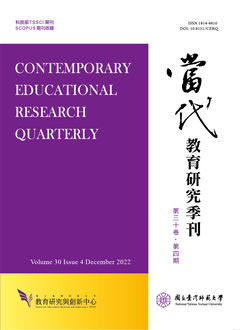

本研究主要從情緒地理的觀點,透過參與觀察和訪談的方式,蒐集「旭日國小」成員在六項關鍵事件中互動過程的資料,以分析校長和成員之間的情緒距離形式和關係,並獲致了以下重要的結論。1.校長和成員主要呈現道德、個人、政治、專業等的距離形式和關係,較少出現社會文化和物理距離的形式和關係。2.校長和成員在教學事務上易於發展道德和專業距離的關係,而在行政運作上則是個人和道德與政治距離的關係。3.校長和主任大致有接近的道德距離關係,惟與教師則有比較接近的專業和個人距離關係。4.誰的責任、建立處理原則、堅持自己立場、以對話發展共識等是構成校長和成員道德距離的主要內涵。5.關心成員需求、忽視工作負荷、採取親切的作為、幽默的人格特質等是校長和成員之間個人距離的影響因素。6.彈性調整的作為、審慎的權力運作、尊重教師實務的態度等是拉近校長和成員政治距離的處理原則。7.重視教師的專業自主性、校長的支援和成員的參與、提供對話的空間等方法,有助於縮短校長和成員之間的專業距離。8.校長和成員各種情緒距離的關係,約略有著相互影響的特質。
Using the perspective of emotional geographies, this study explored the emotional distances and their relations between the principal and the staffs in "the Rising Sun Elementary School". The participatory observations and interviews were adopted in this study. The researchers analyzed the interactive process among 12 members of the school on six critical events and focused on the principal as a center in the school. The main findings were as follows: First, the major categories and their relations among the principal and school members were moral distances, personal distances, political distances, and professional distances, and the least shown relations were sociocultural and physical distances. Second, between the principal and the staffs, the relations of moral and professional distances were developed easily on the teaching affairs. The administrative matters were easy to help creating the personal, moral, and political distances. Third, the close moral distances were shown between the principal and division directors; on the contrary, the principal and the teachers appeared to have relatively close professional and personal distances. Forth, the main connotations of moral distance included the questions of distributive responsibility, building up the operative principles, keeping on the one's own stance, and developing mutual consensus through constant dialogues. Fifth, the influential factors of personal distance were taking care of members' needs, ignoring the workload, adopting the friendly actions, and demonstrating a sense of humor. Sixth, flexible actions, careful power exercises, and respective teaching practice and attitude constituted the operative principles of political distance. Seventh, valuing teachers' professional autonomy, the principal's assistances and members' participation, supplying a dialogue room could shorten the professional distances among the principal and school members. Finally, the relations of the various emotional distances among the principal and school members in this school were shown a slightly interdependent nature.

本著作係採用創用 CC 姓名標示-非商業性 3.0 台灣 授權條款授權.
本刊國立台灣師範大學教育研究與創新中心
106台北市和平東路一段162號 | 電話: 02-7749-3670 | E-mail: cerecerq@gmail.com
教創中心 | 師大 | 電子報 | 線上投審系統
本刊由國家科學及技術委員會人文社會科學研究中心補助經費
© 2014 CERI-NTNU
